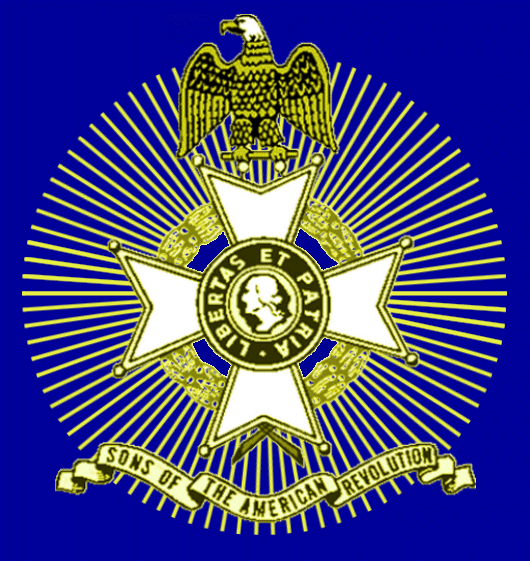The Life and Times of Surgeon George Hunter*
by John D. Sinks
George Hunter was born in Alexandria in 1753 or 1754. He was the eldest son, and to the best of our knowledge, the eldest child, of Dr. John Hunter and his wife, Elizabeth Chapman Hunter. Dr. John Hunter was a native of Scotland who died in 1763. Through is mother’s family, George Hunter was tied to the Virginia and Maryland gentry. His grandfather, Nathaniel Chapman, had financial interests on both sides of the Potomac River. He was one of the executors of Lawrance Washington. In this area. he owned the plantation, “Summer Hill,” which included the land of the Metro Garage on Jefferson Davis Highway at Glebe Road.
Although his father died when George was but a child, he followed in his father’s footsteps as a doctor. At the time of his Revolutionary service, George was living with his widowed mother in Alexandria.
Early in 1776 the British posed a significant threat to the rivers of tidewater Virginia. The new Virginia State Navy began defense programs for each of the major waterways in the state. George Mason and John Dalton formed a committee of two to purchase and build the Potomac Fleet. The largest of the fourteen ships was American Congress. The Congress was a sloop of 110 tons armed with fourteen four and eight pounders and carried a crew of 96, including a company of marines. The Congress was outfitted in Alexandria. Miss Bridgett Fleming and Mrs. Hannah Hunter made the colour or pennant for the ship. The ship was under the command of Commodore John Boucher of Maryland, who had overall command of the flotilla, and Lieutenant (later Captain) Williams Skinner. Charles Lewis Broadwater and Daniel Triplett were midshipmen and John Thomas was first mate. The marines were under the command of Capt. John Allison and Lts. Robert Windsor Brown and James Moody. Dr. George Hunter was commissioned Surgeon. According to the testimony two others who served on the ship, Charles Lewis Broadwater and marine John Adams, was in service as early as April 1776.
The Congress remained in the Potomac until the superior fleet of Gov. Dunmore sailed from the Chesapeake at the beginning of August. By 1 September 1776 the Congress was in Norfolk according to the journal of George Hunter:
The Como. with seven others set off for Norfolk, I should have accompanied him but for the number of sick.
This entry sheds light on the character of George Hunter. Rather than go to Norfolk with its obvious attractions for a young officer, he chose to perform his duty to the sick on board. On Sept. 6 the Congress, the sloop Liberty, and the galleys Manley and Hero were ordered to escort the tobacco brig Adventure "ten leagues out taking all possible care to prevent your convoy from falling into enemy hands." They successfully escorted the Adventure to Cape Hatteras. On the return trip, they were chased by the superior H.M.S. Fowey, but escaped.
Sometime in the fall of 1776 the Congress and other ships of the flotilla returned to Alexandria. Mrs. Hannah Hunter and John Adams, who had worked on outfitting the Congress as a ship carpenter, testified that the fleet was in "deep mourning" for the death of Dr. George Hunter during the voyage. This is a strong indication that Dr. Hunter's devotion to duty had earned him the esteem of the officers and men of the fleet.
George Hunter’s brother, John C. Hunter, applied for bounty land of behalf of the heirs at law. Testimony in support of this application in the late 1820’s and early 1830’s has provided many of the details known about the Congress. The testimony included quotations from George Hunter’s journal, which has apparently since been lost. In 1940 the tombstones and the bodies buried at Summer Hill were removed to this site at Pohick Church. The account of the removal includes a detailed description of the bodies. There is no indication in the record that the body of George Hunter was found. He may well have been buried at sea and memorialized with the tombstone that now stands in this cemetery.
The Fairfax Resolves Chapter has almost always honored patriots who had long careers of community service in past ceremonies. George Hunter died before reaching is mid-twenties. We have no record of his service to the community in the brief period of his adulthood before the Revolution. His death precluded contributions to the new nation after the Revolution. Yet as brief as the record is, the story of George Hunter is a significant one. It is the story of a young man of great talent and opportunity. His dedication to his duty earned him the esteem of those with whom served, or perhaps more accurately, those whom he served. In carrying out his duty, he made the ultimate sacrifice for his country: his life.
* This paper is based on a presentation made at ceremony at the grave of George Hunterat Pohick Church, Lorton, Fairfax Co., Virginia sponsored by the Fairfax Resolves Chapter, Sons of the American Revolution on Nov. 11, 1998.
Bibliography
Virginia Land Bounty Claim Papers of George Hunter, Virginia State Library.
Revolutionary Service File of Charles Lewis Broadwater, National Archives.
Cross, Charles B., Jr. A Navy for Virginia: A Colony's Fleet in the Revolution. Virginia Independence Bicentennial Commission: Yorktown, Va., 1981.
Hunter Family File, Lloyd House, Alexandria City Library.
Pippenger, Wesley E. Tombstone Inscriptions of Alexandria, Virginia, Vol. 3. Family Line Publications, Westminster, Md., 1992.
Sinks, John D. “The Life and Times of Charles Broadwater and Charles Lewis Broadwater,” 1989.
Sinks, John D. “The Life and Times of Elizabeth Chapman Hunter,” 1994.
Stewart, Robert Armistead. The History of Virginia's Navy of the Revolution. Mitchell & Hotchkins: Richmond, Va., 1933.
![]()
Surgeon George Hunter Grave Marker

Surgeon George Hunter Grave Marker
Click to Enlarge

